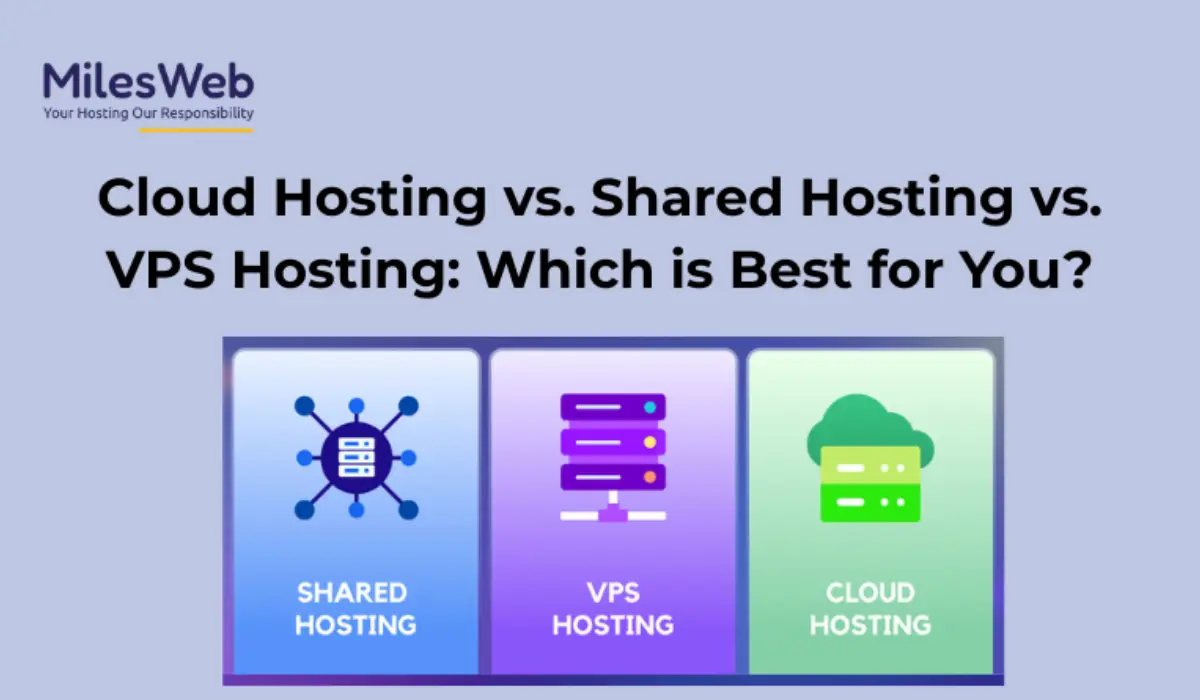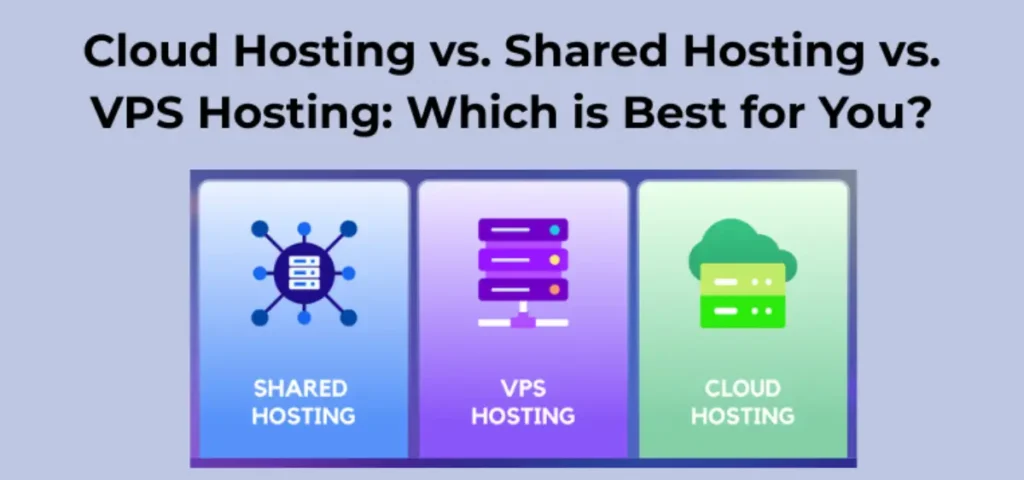Have you completed website development? Choosing the right web host is a challenge. Let’s dive into the deep:
Shared hosting, VPS hosting, and cloud server hosting are on your to-do list. Even experienced developers sometimes get overwhelmed when choosing the right option. So, it is essential to know what works for the web hosting you need.
In this article, we will explore three main types of web hosting, including the cPanel cloud server that small businesses prefer. Each option has distinct advantages and disadvantages, which are crucial to understanding and determining which solution meets the website’s requirements.
Key Differences: Cloud Hosting vs Shared Hosting vs VPS Hosting
Shared Hosting
Shared hosting is the beginner-friendly option. When you sign up for shared hosting, web hosts deploy your website on the server, and multiple users share the same space. As the server resources are being shared, the operational costs are minimized.
It works for moderate-traffic websites like blogs, e-commerce stores, and informational websites. However, because the resources are shared, performance is affected by the websites’ experience. Performance lag occurs during traffic spikes or excessive resource usage.
Pros
● It is affordable. Web hosts like the Namecheap plan start at $1 per month.
● Beginner-friendly as compared to VPS and cloud hosting.
● Web hosts manage server security, upgrades, and maintenance.
Cons
● It is slow; with many other websites running on the same server, your page load times suffer.
● There will be security breaches due to the same server resource sharing.
● Lack of server control and performance.
● Scaling with limited storage and bandwidth is a challenge.
Virtual Private Server (VPS) Hosting
VPS hosting is similar to shared hosting, but it contains virtualization. There is a KVM (Kerner-based Virtual Machine) technology that compartmentalizes different virtual servers. This partition comes with dedicated resources. Hence, they offer optimum security and higher uptime, allowing you to have the right user experience.
Pros
● A VPS is more affordable than a dedicated server, offering a cost-effective solution where you only pay for the resources you need.
● It provides enhanced security. To properly segment the server, the host deploys a software layer that isolates your portion of the server, keeping it entirely separate from other users.
● With VPS hosting, you experience faster performance due to the allocation of more resources compared to shared hosting.
● You also gain root server access, which allows you to customize your hosting environment to your specific requirements and gives you greater control over it.
● Additionally, VPS hosting is highly scalable, meaning it can quickly adapt and expand as your website’s resource demands grow over time.
Cons
● Certain server providers engage in overselling their servers, operating under the assumption that not all websites hosted on a specific server will experience a day of peak traffic simultaneously.
● More expensive than shared hosting.
● If you choose an unmanaged VPS, it may be difficult to configure and it may take longer to get your website up and running.
Cloud Hosting
Cloud hosting relies on fundamental scalability and deploys computing technologies. Instead of hosting a website on a single server, it is hosted on an interconnected network of cloud servers. Consequently, numerous servers collaborate to manage elevated traffic volumes or surges for a specific website.
This web hosting is highly reliable because it draws resources from multiple servers. Other operational server fills the gap. In cloud hosting, servers are scalable and grow along with the website that needs more resources.
Pros
● It’s dependable. While other hosting is based on physical equipment, cloud hosting occurs in data centers consisting of hundreds of redundant servers that cannot fail.
● Scalability and flexibility. If you suddenly require more resources, cloud hosting can be scaled up to accommodate your requirements, and the physical constraint of one server does not limit you.
● Cost-effective. You only get charged for what you consume.
Cons
● It is expensive
● Lots of technical expertise is required for managing cloud hosting.
Also Read
Wrap Up
Choosing the right hosting solution is crucial for the long-term success of your website. Various hosting options, including cloud hosting, shared hosting, and VPS hosting, are designed to meet diverse requirements and financial considerations. Shared hosting is ideal for beginners or small websites that need affordability and simplicity. VPS hosting offers more control, better security, and scalability for growing websites that require dedicated resources. On the other hand, cloud hosting stands out for its flexibility, high uptime, and ability to handle sudden traffic spikes, making it perfect for businesses seeking reliability and performance.
Ultimately, your choice depends on your website’s specific requirements. Consider factors such as traffic, security needs, and your technical expertise before making a decision. If you prioritize stability and top-tier performance, Namecheap offers a range of hosting solutions, including shared, VPS, and cloud hosting, designed to meet diverse user needs. Make the right move today and empower your website with the perfect hosting plan!





